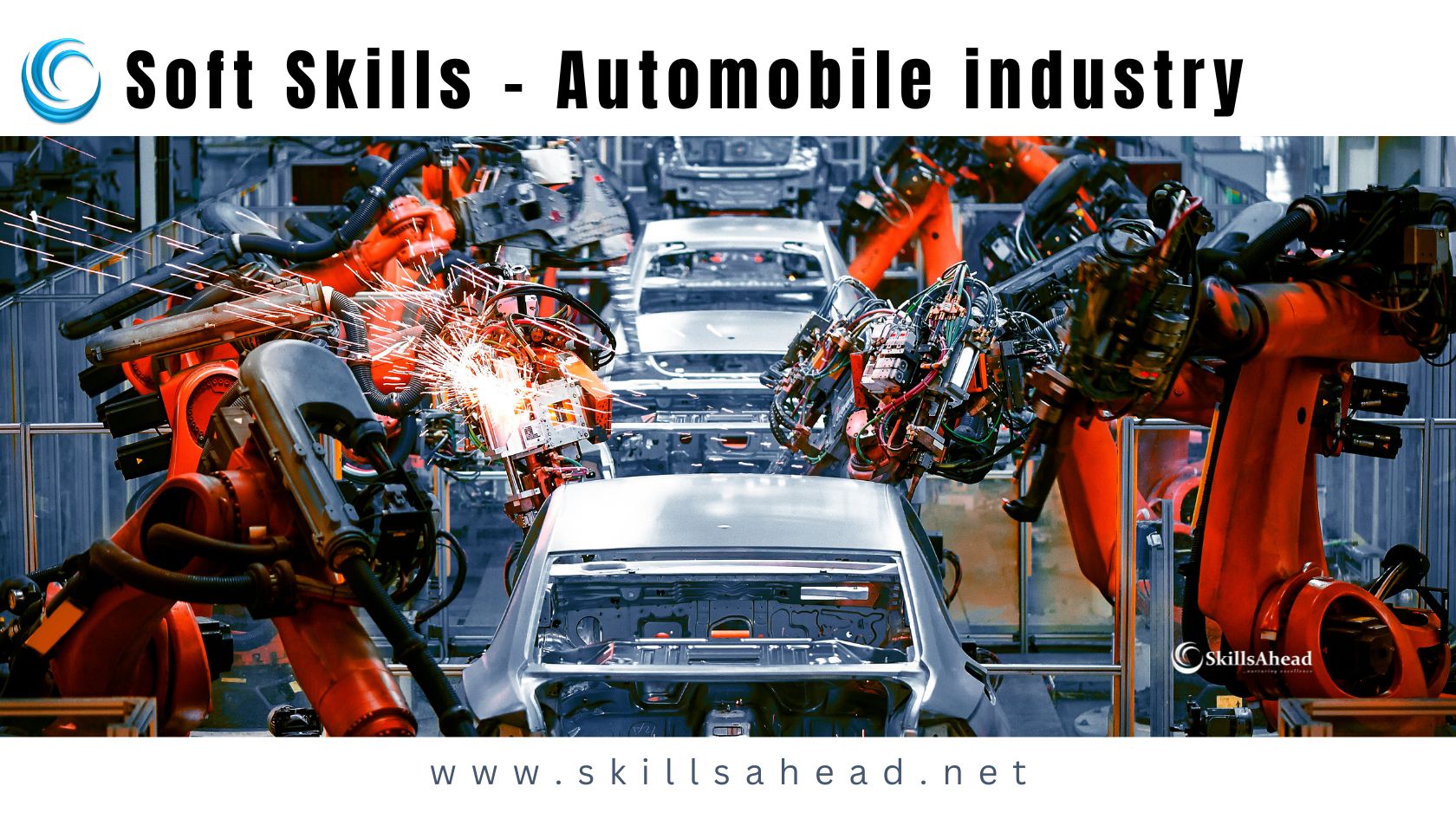Soft Skills Training for Automobile Industry
Title: Navigating the Fast Lane: The Imperative of Soft Skills Training in the Automobile Industry
The automobile industry, a cornerstone of modern transportation, has evolved dramatically over the years. From Henry Ford’s Model T to the latest electric vehicles and autonomous cars, it’s an industry characterized by innovation, precision engineering, and relentless competition. Amid this dynamic landscape, one element often overlooked but crucial for success is soft skills training for employees.
The Changing Face of the Automobile Industry
The 21st-century automobile industry is no longer just about engineering prowess and manufacturing efficiency. While these aspects remain vital, the industry now faces a myriad of challenges that extend beyond the assembly line. These challenges include shifting consumer preferences, increasing environmental concerns, and the rapid integration of technology. In this environment, soft skills have emerged as a key differentiator for both individual employees and organizations as a whole.
Leadership Skills: Steering the Ship
Effective leadership is at the heart of any successful organization, and the automobile industry is no exception. HR and L&D departments must prioritize leadership development as a core component of soft skills training. Whether it’s leading a team of engineers in designing a cutting-edge vehicle or managing a sales force, leadership skills are invaluable.
Leadership training empowers employees with the ability to inspire and motivate their teams, make informed decisions, and navigate complex challenges. In a fast-paced industry where innovation and adaptability are essential, strong leadership can be the difference between staying ahead of the competition or falling behind.
Communication Skills: The Fuel for Collaboration
Clear and effective communication is essential in an industry where cross-functional collaboration is the norm. Engineers must communicate their design specifications to manufacturing teams, marketing professionals must convey the value of new features to customers, and customer service representatives must address inquiries and complaints.
Effective communication skills training equips employees with the ability to convey ideas, negotiate, and resolve conflicts with clarity and diplomacy. It promotes better understanding, minimizes misunderstandings, and enhances teamwork, ultimately leading to more streamlined operations and improved customer satisfaction.
Design Thinking Process: Shaping the Future
Innovation is the lifeblood of the automobile industry. Developing innovative vehicles that meet the changing needs and expectations of consumers is essential for success. This is where the design thinking process comes into play.
Design thinking, a human-centered approach to problem-solving, emphasizes empathy, creativity, and collaboration. It encourages employees to step into the shoes of customers and identify unmet needs. By integrating design thinking into their skill set, employees can drive the creation of vehicles that not only meet functional requirements but also delight customers.
5S Process: Organized Efficiency
In manufacturing, the 5S process is a proven methodology for improving efficiency and reducing waste. It focuses on Sort, Set in order, Shine, Standardize, and Sustain – all of which require discipline, attention to detail, and effective teamwork.
Soft skills training can help employees embrace the 5S process more effectively. It teaches them how to communicate the benefits of 5S to their teams, resolve conflicts that may arise during implementation, and maintain the discipline required for sustaining the improvements.
Conflict Resolution: Smoothing the Bumpy Road
Conflicts are inevitable in any industry, but in the high-stakes world of automobile manufacturing, they can have far-reaching consequences. Soft skills training equips employees with conflict resolution skills, helping them address disputes constructively and prevent them from escalating into larger issues that can disrupt production or damage relationships.
Sales and Marketing: Driving Customer Engagement
In the fiercely competitive automobile market, sales and marketing teams are on the front lines of engaging with customers. Effective soft skills training in these areas can empower employees to build rapport, understand customer needs, and tailor their approach to close deals successfully.
The Competitive Edge
In an industry where precision engineering and technological innovation are prerequisites, it’s easy to overlook the human element. However, it’s often the soft skills—the ability to lead, communicate, collaborate, and innovate—that distinguish the best from the rest.
HR and L&D departments in the automobile industry must recognize that soft skills training is not just an option but a strategic necessity. By investing in leadership, communication, design thinking, 5S process, and conflict resolution training, they can foster a workforce that’s not only technically skilled but also agile, customer-focused, and capable of driving the industry forward.
In conclusion, soft skills are the lubricant that keeps the wheels of the automobile industry turning smoothly. As technology continues to advance and customer expectations evolve, the ability to lead, communicate, innovate, and resolve conflicts will become even more critical. Embracing soft skills training is not just about staying competitive—it’s about leading the race towards a brighter, more sustainable automotive future.


